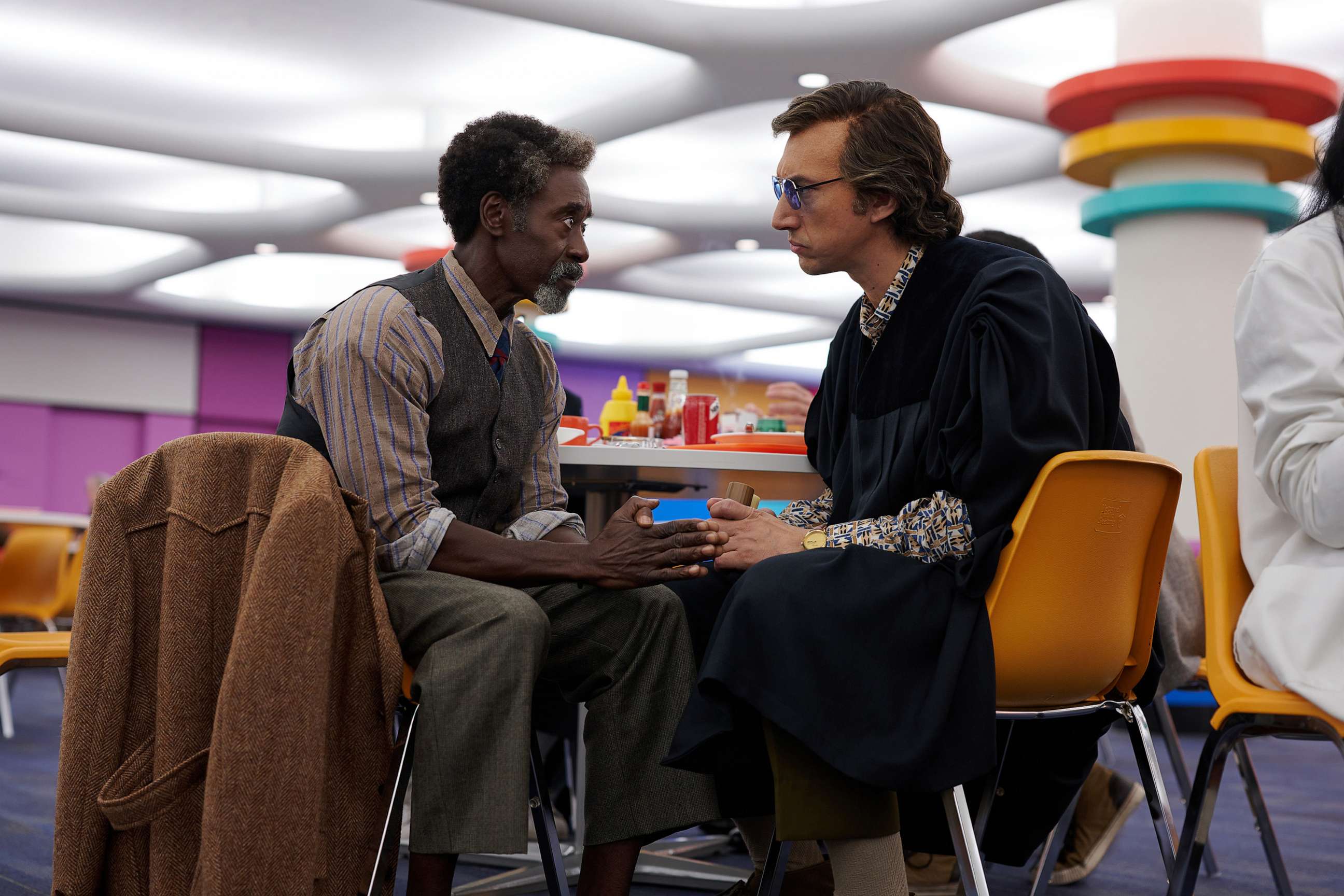Review: 'White Noise' is a sign of respect to a virtuoso but never completely breaks free
It’s Baumbach’s first constricted film.
To understand “White Noise,” the new Noah Baumbach movie now streaming on Netflix, extend the definition of the term to the clamor of the modern media world that distracts us from reality to clear a poison path to rampant consumerism.
Got that? No worries. In his first film adapted from another writer’s work (the 1985 novel by Don DeLillo), Baumbach (“Marriage Story,” “The Squid and the Whale”) starts us off easy with an absurdist comedy, set in Midwestern college town, where Jack Gladney (Adam Driver) heads the department of Hitler studies and joins his wife, Babette (Greta Gerwig), in raising their lively brood of four.
DeLillo's fiction, long thought unfilmable due to its literary themes and digressions, leaves Baumbach intellectually bloody but proudly unbowed.
In short, the movie doesn’t work as a whole, but there’s no denying the glints of brilliance that keep us riveted.
Life is complacent comfort for the Gladney’s and their kids, a baby of their own and three from other marriages -- Babette’s daughter, Denise (Raffey Cassidy) and Jack’s son Heinrich (Sam Nivola) and daughter, Steffie (May Nivola). The last two are the gifted offspring of actors Alessandro Nivola and Emily Mortimer.

Jack isn’t even bothered when his professor pal, Manny (a terrific Don Cheadle), who develops a class out of old movie car crashes, counters Jack’s career-making course on Hitler with his own lectures on Elvis.
The academic spoofing ends when everyone takes to the road, evacuating in panic from an “airborne toxic event” that just might signal the end of days.
Though the film, like the book, stays rooted in the 1980s (no cellphones!), there’s a timely connection to COVID-19 intensified by the fact that the film was shot during the pandemic.

Kudos to Baumbach’s vibrant cast for deepening characters who are little more than DeLillo mouthpieces in the book. As the pill-popping Babette, Gerwig makes something palpable and moving of thwarted ambition. And Driver, displaying a paunch and slumping posture, remains an actor of limitless range who actually brings flesh and spirit to an academic concept.
Still, Baumbach’s honorable faithfulness to the novel that won DeLillo the National Book Award leaves his movie struggling between two mediums. When it comes to deconstructing existential dread, cinema is no match for the fullness of the page. At least it isn’t here.

“White Noise” plays like a Baumbach collaboration with DeLillo, a sign of respect to a virtuoso. And I don’t mean this as a compliment. It’s Baumbach’s first constricted film, the one that never completely breaks free.
Except, of all places, in the end credits.
Unfolding in a supermarket where customers -- on a contact high from shelves overstuffed with brightly colored brand name junk food -- break into a song and dance sparked by “New Body Rhumba,” a fresh anthem from LCD Soundsystem.
The sequence is a blast and the scariest thing I’ve seen on film since George Romero set zombies loose at a shopping mall in 1978’s “Dawn of the Dead.” It’s also Baumbach breaking free of DeLillo to make his own kind of apocalyptic poetry. “White Noise,” which goes flooey more often than it hits the mark, needed more of that.







